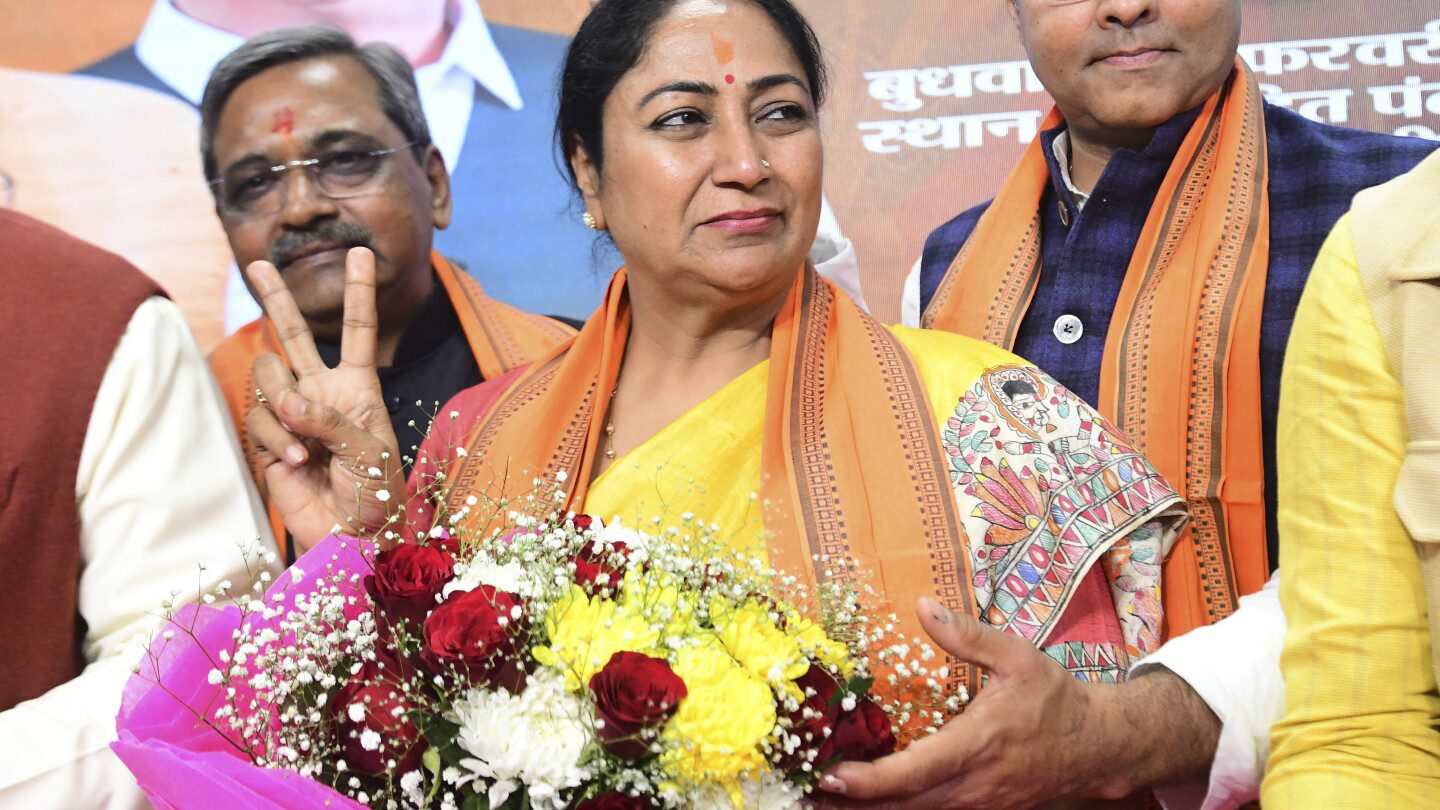
NEW DELHI (AP) — On Wednesday, India’s ruling Hindu nationalist party appointed Rekha Gupta as the chief minister of New Delhi, which includes the nation’s capital. This decision comes as Prime Minister Narendra Modi seeks to strengthen his party’s influence in the region following their victory in the recent local elections. The BJP emerged triumphant, securing the most seats in the New Delhi assembly for the first time in 27 years.
Ravi Shankar Prasad, a leader of the Bharatiya Janata Party (BJP), announced that Gupta, a former student leader, would take on the role of chief minister. The BJP captured 48 out of the 70 seats, ousting the Aam Aadmi Party, which secured only 22 seats.
In her acceptance speech, Gupta expressed gratitude to her party and committed to addressing significant challenges, including air and river pollution, as well as inadequate infrastructure in Delhi. Prior to the election, the BJP had pledged to improve government schools, provide free health services, offer free electricity, and grant monthly stipends of over 2,500 rupees ($29) to underprivileged women.
This appointment makes Gupta the fourth woman to hold the position of chief minister in Delhi, although it remains uncommon for Indian political parties to appoint women to such high-ranking roles. Presently, the only other female chief minister in India is Mamata Banerjee of the All India Trinamool Congress party in West Bengal.
India has set a target for legislatures to achieve 33% female representation by 2029. Currently, women occupy about 14% of parliamentary seats, the highest percentage since independence, yet still falling short of the global average of 26.5%.
Gupta, who previously served as a general secretary for the BJP, began her political career as a student leader at Delhi University in 1992. She is recognized for her work advocating for women and children’s welfare, as well as supporting disadvantaged female students.
The BJP’s return to power in Delhi marks a significant shift after a 25-year absence, during which the Congress party held dominance from 1998 to 2013, followed by the AAP, which gained prominence through an anti-corruption campaign.
This recent electoral win provides a much-needed boost for the BJP after they struggled to achieve a majority in last year’s national election, forming a government with coalition partners instead. The party has regained lost ground by winning three state elections in northern Haryana, Delhi, and western Maharashtra.
In a strategic move ahead of the elections, the BJP reduced income taxes for the salaried middle class, a key voter demographic, in the federal budget.
The AAP faced difficulties following the arrest of its founder and leader, Arvind Kejriwal, along with two other officials on bribery allegations concerning a liquor distributor. Although they denied the accusations, labeling them as a political ploy, Kejriwal and the others were later released on bail by the Supreme Court, with Kejriwal subsequently resigning as chief minister of Delhi.









